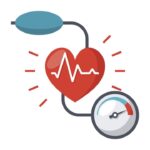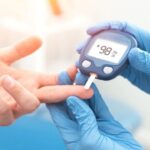As we are aware, cancer often exhibits few symptoms in its early stages. However, with early detection methods, most cancers can be effectively treated or managed long-term. Through the following article, we aim to provide a comprehensive understanding of this issue.
1. High Treatment Success Rate with Early Cancer Detection
Early detection significantly increases the chances of successful treatment for most cancers through appropriate interventions. In very early stages, patients may only require tumor removal without additional support methods such as chemotherapy or radiation therapy. This minimizes treatment costs, reduces side effects, and prevents disease complications.
The success rates and survival rates for some cancers if detected early are as follows:
– Colorectal Cancer: Over 90% of colorectal cancer cases diagnosed early can live for more than 5 years.
– Breast Cancer: Over 90% of women diagnosed with early-stage breast cancer can survive for at least 5 years, compared to only 6% survival rate in late-stage cases.
– Ovarian Cancer: Over 90% of women diagnosed with early-stage ovarian cancer can survive for at least 5 years, whereas late-stage cases have a survival rate of about 5%.
– Lung Cancer: When detected early, approximately 70% of patients can survive for at least 1 year post-diagnosis, compared to a 14% survival rate in late-stage cases.

The treatment success rate for cancer is higher when cancer is detected early.
2. Reasons for Late Cancer Diagnosis
Several factors contribute to late cancer diagnosis, making treatment challenging and decreasing survival rates. Statistics show that about 25% of cancer patients are diagnosed during emergency hospital admissions due to various symptoms. These patients generally have lower survival chances due to the advanced stage of the disease.
Other reasons for late diagnosis include:
– Many cancer symptoms are not prominent in the early stages.
– Some individuals are complacent about healthcare measures, opting for self-medication instead of seeking medical advice when experiencing unusual symptoms.
– Fear of diagnosis prompts some individuals to delay hospital visits for check-ups.
3. Strategies for Early Cancer Detection
3.1. Regular Cancer Screening
Relying solely on symptoms for diagnosis makes early cancer detection difficult, as symptoms often appear in the later stages of the disease. According to healthcare experts, regular cancer screening is an effective method for early tumor marker detection.
Many hospitals offer cancer screening packages tailored to different demographics, including various tests such as blood tests, imaging diagnostics, and functional assessments to identify tumors throughout the body. These screenings also detect other health issues like high cholesterol, hypertension, gout, and diabetes, etc. Therefore, individuals should not overlook regular cancer screenings to promptly detect and treat precancerous conditions.

Thu Cuc Hospital offers a variety of cancer screening packages suitable for various demographics
3.2. Process of Early Cancer Screening
Typically, the early cancer screening process involves the following steps:
Step 1: Clinical Examination
Basic clinical examination assesses personal and family medical history to evaluate overall health status. Additionally, doctors inquire about any unusual symptoms to determine the most suitable screening methods.
Step 2: Paraclinical Tests
- Basic laboratory tests
- Specific tumor marker tests
- Imaging diagnostics/Functional assessments such as endoscopy, ultrasound, X-rays, CT scans, and MRI scans.
Step 3: Result Interpretation with Medical Consultation
After obtaining screening results, doctors interpret the findings for patients, provide dietary and lifestyle advice, and recommend appropriate treatment plans for identified conditions.

Regular cancer screening plays a crucial role in safeguarding health.
3.3. Common Cancers and Target Screening Groups
For Breast Cancer
- Women aged 20 and above.
- Women at high risk, including those with a family history of breast cancer, early menstruation (before 12 years), late menopause (after 55 years), those using oral contraceptives or estrogen, those without children/first childbirth after 30 years, those with a high-fat diet, smokers, and alcohol consumers.
For Liver Cancer
- Individuals infected with hepatitis B or C viruses.
- Patients with diabetes or obesity.
- Those with liver cirrhosis due to excessive alcohol consumption.
- Individuals experiencing symptoms such as chronic fatigue, dark urine, abdominal pain, or subcutaneous bleeding.
For Lung Cancer
- Individuals aged between 55 and 74.
- Current or former smokers within the past 15 years.
- Individuals with a history of smoking for around 30 pack-years or more.
Currently, cancer incidence rates are rising, particularly in developing countries like Vietnam. Therefore, early cancer screening is an essential activity that every individual should prioritize.








